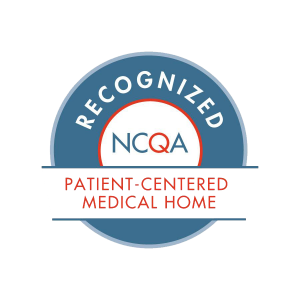
Father’s Day is Sunday, June 16th. Fire up the grill, guys! This is also the perfect time of year to check in with the father or fathers in your life and make sure that they are getting the medical care and support that they need.
What are key men’s health issues?
This often depends on age, but adult men should have regular meetings with their Primary Care Physician (PCP) to discuss topics including:
- Diet and exercise
- Healthy habits including avoiding tobacco and limiting alcohol
- Managing stress and staying mentally health
- Skin checks and education about skin cancer prevention
- Cancer screenings including colonoscopies and a discussion about the latest in screening for prostate cancer
- Staying up to date on vaccines
- Getting periodic blood work to screen for conditions such as diabetes, or to monitor existing conditions such as having an underactive thyroid or high cholesterol.
Why are regular visits to the doctor important?
Regular checkups are important because they can help identify issues before they start, and catch conditions at their earliest stages. Regular checkups also help men develop and maintain a healthy relationship with a provider, reduce the anxiety of seeing a provider, help men get the best care for their existing health conditions, and also help men navigate the complex health care system and system of resources.
It stands to reason that men who have high blood pressure, high cholesterol, or take medication for depression have a better chance of controlling these conditions if they see a provider regularly. A 2013 study published in Cancer, a Journal of the American Cancer Society, found that for patients in the United States on Medicare, those who had more visits to their PCP were more likely to have appropriate screening for colon cancer, and had lower rates of death from this cancer as well.
Have there been any recent changes in men’s health issues?
Yes! Modern medicine is rapidly evolving, including certain practices around men’s health.
One major area where we are seeing a shift is in screening for prostate cancer. Major groups including the United States Preventive Services Task Force (USPSTF), American Cancer Society (ACS), and American Urological Association (AUA) have updated their guidelines in the past few years, which has significantly affected what many of us may recommend in primary care.
The ACS and AUA recommend that patients and providers have a discussion of the benefits and risks regarding PSA testing to promote shared-decision making – they do not recommend routine PSA screening. The next question (and the appropriate one) that I get from men after I talk with them about this situation is, “So how do you screen for prostate cancer?” This is a tough question to answer because we currently do not have any better ways to screen for prostate cancer than the PSA test. How to handle this situation is difficult, far beyond the scope of this article, and really comes down to individual discussions with your provider.
Another hot topic in men’s health right now is “Low T” (low testosterone). Any person who has watched TV for any period of time has probably been subjected to persistent advertising around testosterone replacement from drug manufacturers. They would have you believe that any nonspecific symptom, from fatigue and reduced energy, to not sleeping well, to feeling bluesy is the result of “low T” and that you should have your doctor check your testosterone level. I certainly welcome this discussion in my practice, but caution men to proceed slowly. What the commercials don’t tell you, and what no one can look you in the eye and tell you, is whether the nonspecific symptoms that made you get your testosterone checked in the first place, will actually improve with testosterone therapy. We know there are risks to taking testosterone therapy. We do not know there are clear benefits in many cases.
Regular visits are about YOU!
In my opinion, the “best” patient is a well-informed one. Regular visits are not about finding reasons to order every test and screen for every disease. They are a chance for you to ask questions, hear about the latest advances in medicine, and to make customized health decisions based on your individual needs and choices.
Use this Father’s Day to remember the important men in your life, thank the important men in your life, and encourage them to get the help they need to stay healthy.
Where can I get more information?
The family of Pacific Medical Group clinics is here to help you.
- Talk with your provider
- Information specifically on prostate cancer screening can be found at: https://www.cancer.org/cancer/prostate-cancer.html


